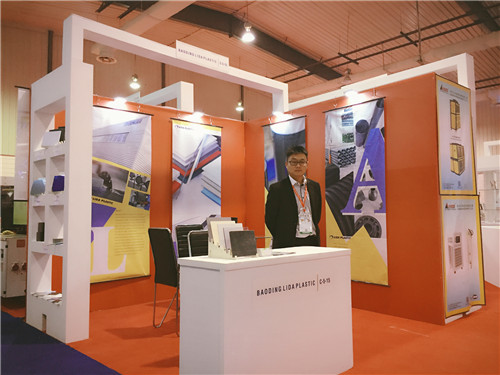Aug . 19, 2024 05:30 Back to list
Solid PVC Pipe Applications and Benefits for Construction and Plumbing Projects
Understanding Solid PVC Pipe Applications, Benefits, and Installation
Solid PVC (Polyvinyl Chloride) pipes have become increasingly popular across various industries due to their durability, lightweight nature, and versatility. These pipes are made from a strong and resilient plastic polymer, making them an excellent choice for an array of applications ranging from plumbing to irrigation and construction. In this article, we will delve into the characteristics, advantages, and installation practices associated with solid PVC pipes.
Characteristics of Solid PVC Pipe
Solid PVC pipes exhibit various physical and chemical properties that contribute to their widespread usage. One of the most significant characteristics is their resistance to corrosion and chemicals. Unlike metal pipes, which can rust and degrade when exposed to harsh chemicals, PVC pipes maintain their integrity for many years. This feature makes them ideal for transporting water, chemicals, and waste.
Moreover, solid PVC pipes are lightweight compared to alternatives like concrete or metal pipes. This lightness facilitates easier handling and installation, reducing labor costs and time. PVC pipes are also available in various diameters and lengths, catering to a wide range of projects and requirements.
Benefits of Solid PVC Pipe
There are numerous benefits to using solid PVC pipes. First and foremost is their durability. With a lifespan that can exceed 50 years when properly maintained, PVC pipes are an investment that pays off over time. They are unaffected by rust, scaling, and biological growth, which can plague other materials.
Additionally, solid PVC pipes are designed to withstand high pressure, making them suitable for many applications, including pressure and non-pressure systems. Their high tensile strength ensures they can endure the stresses of underground installations, minimizing the risk of breaks or leaks.
solid pvc pipe

Another advantage of solid PVC pipes is their low thermal conductivity, which helps to prevent condensation and heat loss, making them energy-efficient for HVAC systems. Moreover, they are often more economical than other piping materials, offering significant cost savings in terms of both material and installation expenses.
Installation Practices
Installing solid PVC pipes requires careful planning and adherence to specific guidelines to ensure optimal performance and longevity. First, a thorough site assessment is necessary to determine the best route for the pipes, considering factors such as existing utilities, soil type, and drainage patterns.
When installing solid PVC pipes, it's crucial to utilize the right fittings and adhesives. PVC cement should be applied evenly to both the pipe and the fitting, ensuring a strong bond. It's also essential to allow adequate time for the cement to cure before applying pressure.
During installation, care must be taken to avoid bending or stressing the pipes. Trench depths and backfill materials should be chosen thoughtfully to prevent damage to the pipes. Additionally, conducting pressure tests after installation can help identify any potential leaks before the system is put into service.
Conclusion
In conclusion, solid PVC pipes offer numerous advantages for various applications, making them a preferred choice in many industries. Their durability, chemical resistance, and cost-effectiveness make them an attractive option for plumbing, drainage, and other piping systems. Understanding the characteristics and proper installation methods of solid PVC pipes can help users maximize their benefits, ensuring reliable and long-lasting performance. Whether you are a contractor, plumber, or an individual planning a DIY project, solid PVC pipes can provide a dependable solution for your needs.
-
Durable PP Rigid Sheet: Lightweight, Chemical Resistant Solutions
NewsAug.21,2025
-
PVC Grey Sheet for Extraction: Chemical Resistant & Durable
NewsAug.19,2025
-
Durable PVC Pipe Fittings for Plumbing & Irrigation Needs
NewsAug.18,2025
-
HDPE Steel Belt Reinforced Spiral Corrugated Pipe | High Strength
NewsAug.17,2025
-
HDPE Pipe Fittings: Durable, Leak-Proof Solutions
NewsAug.16,2025
-
Premium CPVC Sheet: High-Temp & Chemical Resistant Solutions
NewsAug.15,2025

